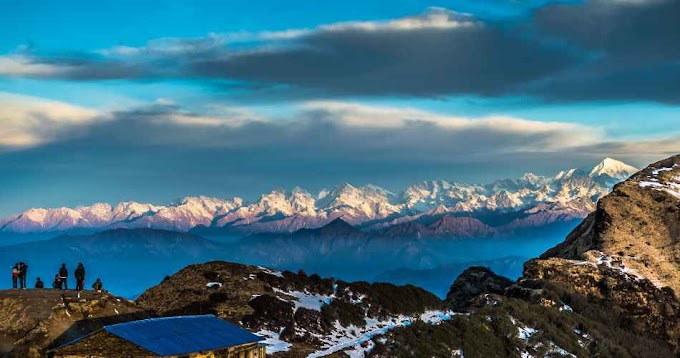Hotel management is a field that involves the management and operation of a hotel or a resort. It includes managing various departments such as front office, food and beverage, housekeeping, and sales and marketing. The primary goal of hotel management is to provide excellent customer service and ensure that guests have an enjoyable and comfortable stay at the hotel or resort.
A hotel management course provides students with the necessary skills and knowledge required to manage and operate a hotel or a resort successfully. The course covers various subjects such as hotel operations, food and beverage management, front office management, housekeeping, and event management. With a hotel management course, students can learn the skills required to excel in this field, including customer service, leadership, communication, and adaptability. In this blog we will let you know what is the scope of hotel management course in Nepal and qualification/skill requirement.
Brief history of Hotel Coures Management in Nepal
The hotel management industry in Nepal dates back to the early 1960s, when the first five-star hotel, the Hotel Himalaya, was established in Kathmandu. Over the years, several other hotels and resorts have opened up across the country, leading to the growth of the hotel management industry. Today, Nepal's hospitality industry is a thriving sector, contributing significantly to the country's economy and providing numerous job opportunities for Nepali students.
The Growing Hospitality Industry in Nepal
The hospitality industry in Nepal has grown significantly over the past few years, with the rise in tourism and investment in the sector. In this section, we will discuss the statistics on tourism in Nepal, investment in the hospitality industry, and the rise in the number of hotels and resorts.
a) Statistics on Tourism in Nepal
Tourism is one of the largest industries in Nepal, contributing significantly to the country's economy. According to the Department of Immigration, Nepal welcomed over 1.17 million tourists in 2019, a 6.8% increase from the previous year. The number of tourists visiting Nepal is expected to continue to rise, with the government of Nepal setting a target of welcoming 2 million tourists by 2020.
b) Investment in the Hospitality Industry
The hospitality industry in Nepal has seen a significant increase in investment over the past few years. The government of Nepal has introduced several policies and incentives to encourage investment in the sector, leading to the establishment of several new hotels and resorts across the country. According to the Department of Industry, the hospitality sector in Nepal received an investment of NPR 8.15 billion in the fiscal year 2019/20.
c) Rise in the Number of Hotels and Resorts
The rise in tourism and investment in the hospitality industry has led to a significant increase in the number of hotels and resorts in Nepal. According to the Department of Tourism, there are over 1,600 hotels and resorts in Nepal, with more than 50,000 rooms available for tourists. The majority of these hotels and resorts are located in Kathmandu and Pokhara, two of the most popular tourist destinations in Nepal.
The hospitality industry in Nepal is a growing sector, contributing significantly to the country's economy. With the rise in tourism and investment in the sector, the number of hotels and resorts in Nepal is expected to continue to increase in the coming years and increase the scope of hotel management course in Nepal.
Scope Of Hotel Management Course In Nepal
A hotel management course can open up several career opportunities for students in the hospitality industry. In this section, we will discuss the various roles in hotel management, the salary packages and benefits, and the career progression in the hospitality industry.
a) Roles in Hotel Management
Front Office Manager: A front office manager is responsible for managing the front desk, reservations, and guest services. They ensure that guests have a comfortable and enjoyable stay at the hotel.
Food and Beverage Manager: A food and beverage manager is responsible for managing the food and beverage operations of a hotel or a restaurant. They ensure that the food is of high quality, the staff is well-trained, and the customers are satisfied.
Executive Chef: An executive chef is responsible for overseeing the kitchen operations and creating menus for the hotel or restaurant. They ensure that the food is of high quality, the ingredients are fresh, and the kitchen staff is well-trained.
Sales and Marketing Manager: A sales and marketing manager is responsible for promoting the hotel or resort and increasing its revenue. They develop marketing strategies, negotiate contracts, and maintain relationships with clients.
Human Resource Manager: A human resource manager is responsible for managing the staff of the hotel or resort. They recruit, train, and motivate employees, and ensure that the hotel is in compliance with labor laws.
b). Salary Packages and Benefits
The salary packages and benefits in the hospitality industry vary depending on the role and the experience of the employee. However, most hotel management graduates can expect to earn a competitive salary, along with benefits such as health insurance, retirement plans, and paid vacation time.
c) Career Progression in the Hospitality Industry
The hospitality industry offers numerous opportunities for career progression. Graduates can start their careers in entry-level positions and work their way up to managerial roles or even executive positions. With experience and further education, graduates can also move into specialized roles such as event management, hospitality consulting, or international hotel management.
Hotel Management Course In Nepal
In this section, we will discuss the course duration and eligibility criteria, curriculum and syllabus, and the top hotel management colleges in Nepal.
a) Course Duration and Eligibility Criteria
The duration of the hotel management course in Nepal is generally three years for a Bachelor's degree and two years for a Master's degree. The eligibility criteria for a Bachelor's degree in hotel management are 10+2 or equivalent with a minimum of 50% marks. For a Master's degree, the candidate must have a Bachelor's degree in hotel management or a related field with a minimum of 50% marks.
b) Curriculum and Syllabus
The curriculum and syllabus for the hotel management course in Nepal are designed to provide students with a broad understanding of the hospitality industry. The course covers various topics such as hotel operations, food and beverage management, front office management, housekeeping management, accounting and finance, human resource management, marketing, and sales.
Apart from the classroom teaching, students are also required to undergo practical training in hotels, restaurants, and resorts. The practical training provides students with hands-on experience and helps them develop their skills and knowledge in real-world settings.
c) Top Hotel Management Colleges in Nepal
- Nepal Academy of Tourism and Hotel Management (NATHM)
- Nepal College of Management (NCM)
- Silver Mountain School of Hotel Management (SMSH)
- International School of Tourism and Hotel Management (ISTHM)
- Kathmandu Academy of Tourism and Hospitality (KATH)
These colleges offer a variety of hotel management courses at the Bachelor's and Master's levels. They also provide practical training opportunities to students and have collaborations with several hotels and resorts in Nepal and abroad.
Skills Required for a Successful Career in Hotel Management
To succeed in the hospitality industry, it is important to possess certain skills that are essential for a career in hotel management. In this section, we will discuss some of the key skills that are required to have a successful career in hotel management.
a) Communication Skills
One of the most important skills that a hotel management professional should possess is excellent communication skills. Effective communication is vital in the hospitality industry as it involves interacting with guests, team members, and management. Hotel management professionals need to be able to communicate clearly and effectively, whether it is in person, over the phone, or via email.
b) Customer Service Skills
Customer service is at the heart of the hospitality industry, and it is crucial for hotel management professionals to have excellent customer service skills. They need to be able to anticipate the needs of their guests and provide them with exceptional service to ensure a positive experience. They should be able to handle guest complaints and resolve issues promptly and professionally.
c) Leadership and Management Skills
Hotel management professionals need to have strong leadership and management skills to effectively manage their teams and operations. They should be able to delegate tasks, motivate their team members, and provide guidance and direction to ensure that operations run smoothly.
d) Attention to Detail
Attention to detail is essential in the hospitality industry, as small mistakes can have a significant impact on the guest experience. Hotel management professionals need to pay attention to every detail, from ensuring that the rooms are clean and well-maintained to making sure that the food is of the highest quality.
e) Adaptability and Flexibility
The hospitality industry is constantly changing, and hotel management professionals need to be adaptable and flexible to keep up with the changes. They should be able to adjust to new situations and be willing to take on new challenges. They should also be able to work flexible hours and be available to work weekends and holidays.
Conclusion
In conclusion, hotel management is a critical industry in Nepal that plays a significant role in the country's economy. The sector has experienced significant growth in recent years, with a rise in the number of hotels, resorts, and investments in the hospitality industry.
The hospitality industry in Nepal provides excellent career opportunities for individuals who possess the required skills and education. Hotel management professionals are essential in ensuring that guests receive exceptional service and have a positive experience during their stay.
The scope of hotel management course in Nepal looks bright, with more investments and developments expected in the sector. The industry has a lot of potential for growth and offers many exciting career opportunities.





_11zon(1).jpg)
_11zon.jpg)
![Canon MF3010 Price in Nepal [Latest Updated]](https://blogger.googleusercontent.com/img/b/R29vZ2xl/AVvXsEgJA0j12Vyn5bTdbIdul1kWdR5QiTuYfnUbgw7RbQJey305nF68g5bgVoAYAGVIYkJxW26Q7DFWwXt6c4hk_uXhIflWB0j34oyqy9Xcfr8ZnFbgUSP0o2mGSJ1QJn_Hmvq0gT5s7A80z_JGnJTVF_tboGspuAK_nQf1fxDqOhHBGZ4IWHJqybk3PUfm/w680/images.jpg)

